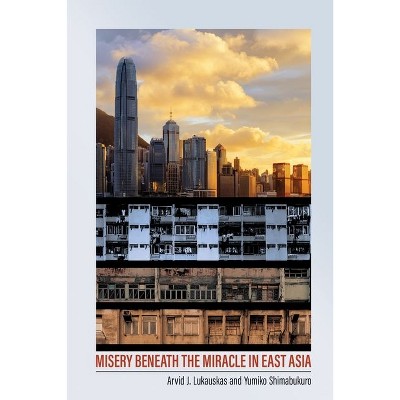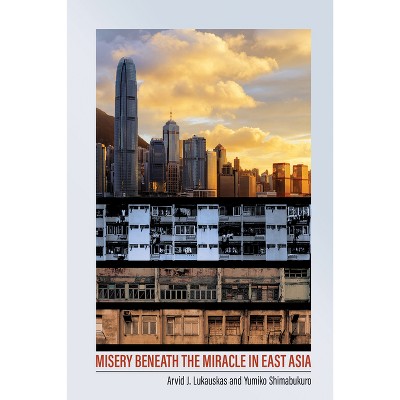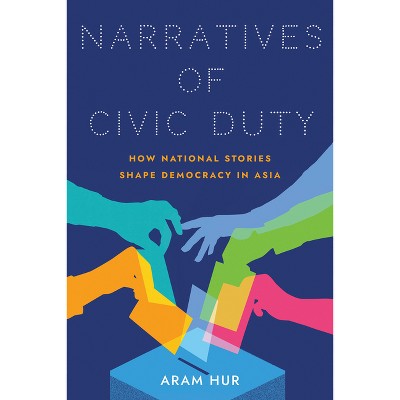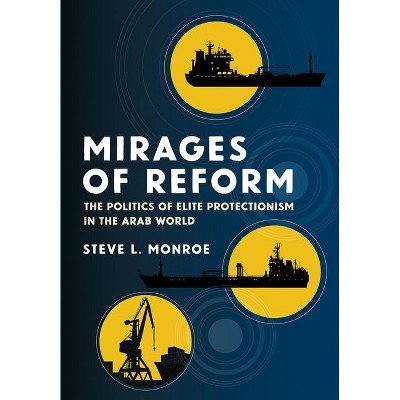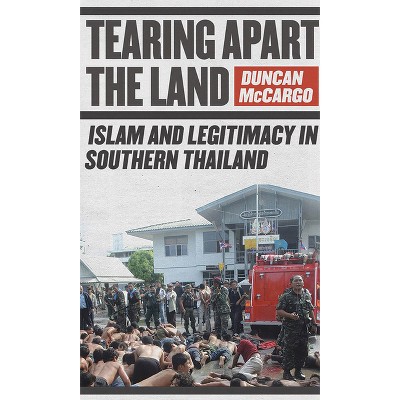Sponsored

Liberalism Disavowed - by Beng Huat Chua (Paperback)
In Stock
Sponsored
About this item
Highlights
- In Liberalism Disavowed, Beng Huat Chua examines the rejection of Western-style liberalism in Singapore since the nation's expulsion from Malaysia and formal independence as a republic in 1965.
- About the Author: Beng Huat Chua holds the Provost Chair in the Department of Sociology at the National University of Singapore and directs the Cultural Studies in Asia program at the NUS Asia Research Institute.
- 234 Pages
- Political Science, World
Description
About the Book
In Liberalism Disavowed, Beng Huat Chua examines the rejection of Western-style liberalism in Singapore since the nation's expulsion from Malaysia and formal independence as a republic in 1965.
Book Synopsis
In Liberalism Disavowed, Beng Huat Chua examines the rejection of Western-style liberalism in Singapore since the nation's expulsion from Malaysia and formal independence as a republic in 1965. The People's Action Party, which has ruled Singapore since 1959, has forged an independent non-Western ideology that is evident in various government policies that Chua analyzes, among them multiracialism, public housing, and widespread social distributions to the citizenry.
Singapore is prosperous and peaceful, it's highly advanced on various metrics of economic development, it has a great deal of regional influence, it is home to sophisticated industries and a large financial service sector, and it features what are by Western standards unusually low levels of social inequality. Paradoxically, however, it is no beacon of political liberalism. Chua sets forth ample evidence that the dominance of the People's Action Party is based on a combination of economic success and media control, limits on public protests, libel suits against political opponents, and severely curtailed civil liberties.
Review Quotes
Liberalism Disavowed is... an excellent one-volume treatment of Singapore society, and scholars interested in Asia, political economy, and alternative governance ideologies can approach the text with confidence.
-- "Journal of the Malaysian Branch of the Royal Asiatic Society"An informative and nuanced publication on this question of liberalism's place in contemporary Singapore. The publication serves as a useful text on both the city-state's peculiar politics and the nature of liberalism itself as it is actualised--or rejected--in the modern world.
-- "Mekong Review"The book is easy to read, full of statistical facts (except income distribution data), and suitable for undergraduate, graduate, and professional audiences.
-- "Choice"The contribution of Chua's Liberalism Disavowed is very large in that it shows how the hegemony of the PAP is working and resisting liberalism, especially in the everyday world of Singaporeans. It re-interprets the origin of public support for the PAP by focusing on its embedded social democratic origin.
-- "inter-asia cultural studies"This penetrating account of the Singapore model by a senior Singaporean sociologist explains both why the model works and why it is not transferable to other countries.... Contrary to conventional wisdom, he argues that neither repression nor a cultural preference for authoritarianism explains the regime's success; rather, the state's successful policies - rooted in social democratic ideology and meritocratic leadership - and the island nation's strategic vulnerability explain why the population has accepted an elitist, repressive system for over 50 years and why it will probably continue to do so.
-- "Foreign Affairs"This well-written and insightful volume is the culmination of Chua Beng Huat's academic work on state and society in Singapore and brings together many of his path-breaking arguments that have significantly shaped our understanding of the country.
-- "contemporary southeast asia"About the Author
Beng Huat Chua holds the Provost Chair in the Department of Sociology at the National University of Singapore and directs the Cultural Studies in Asia program at the NUS Asia Research Institute. He is the author of Structure, Audience and Soft Power in East Asian Pop Culture, Life Is Not Complete without Shopping: Consumption Culture in Singapore, Political Legitimacy and Housing: Singapore's Stakeholder Society, and Communitarian Ideology and Democracy in Singapore.
Shipping details
Return details
Trending Non-Fiction







